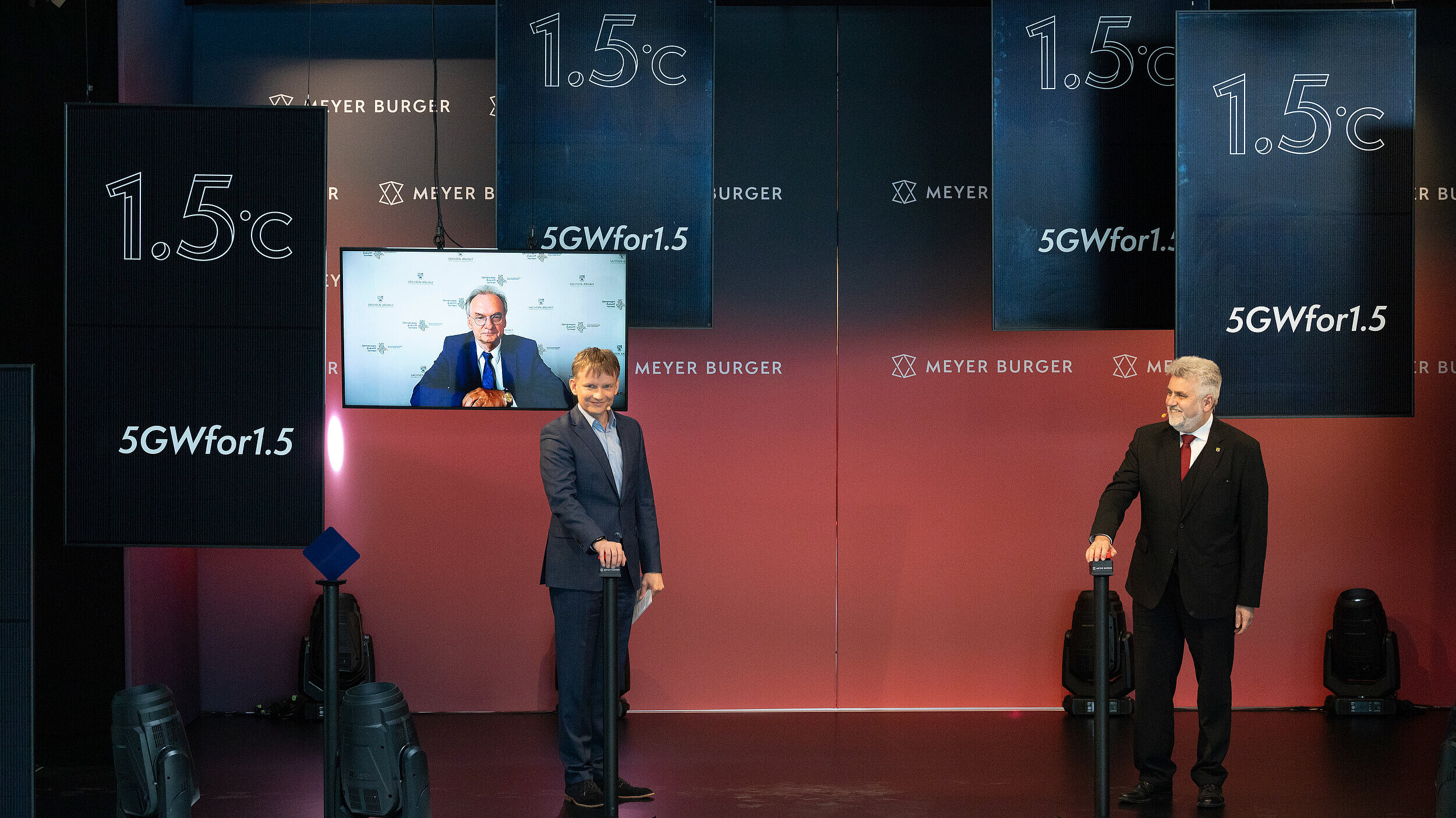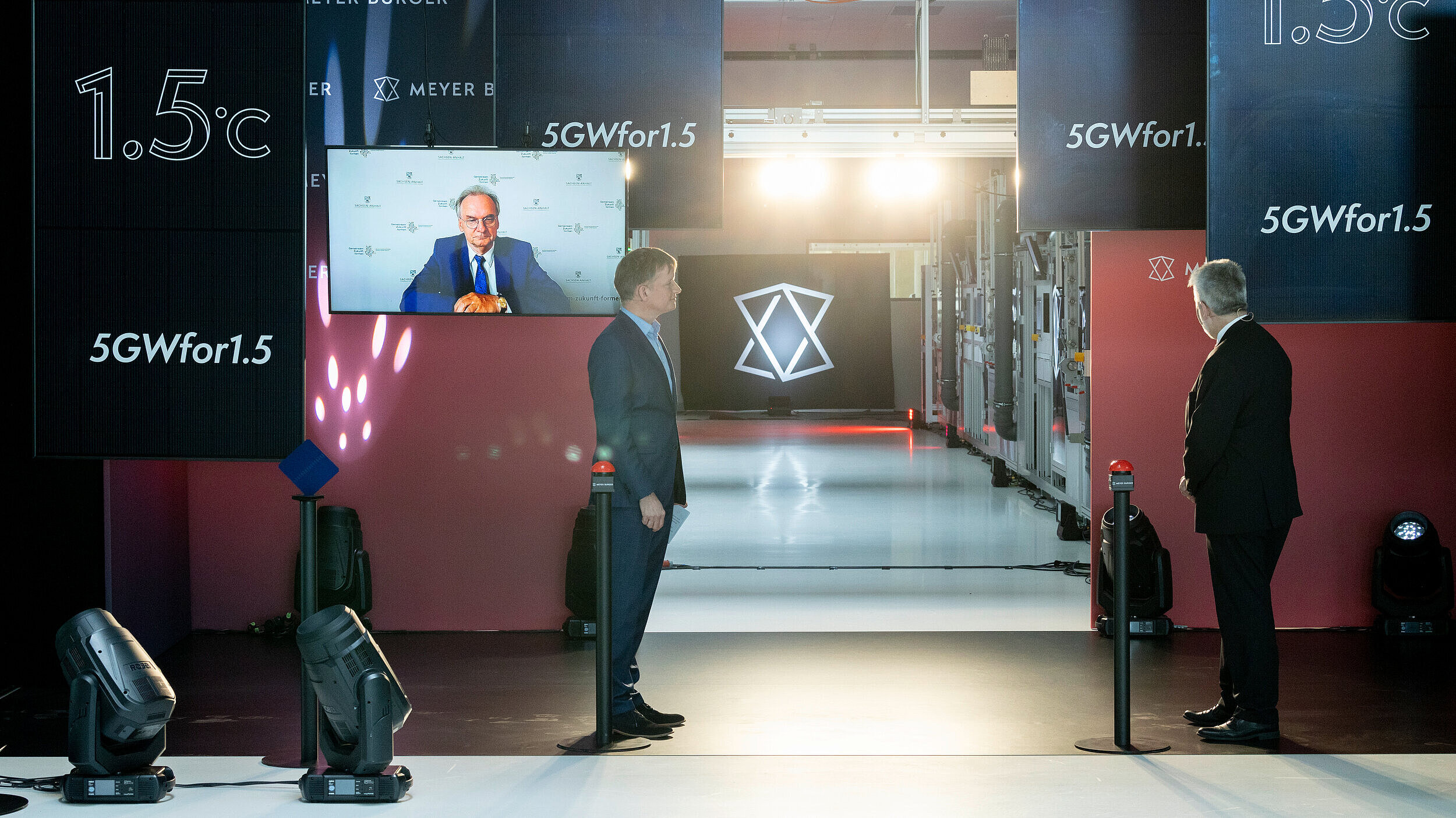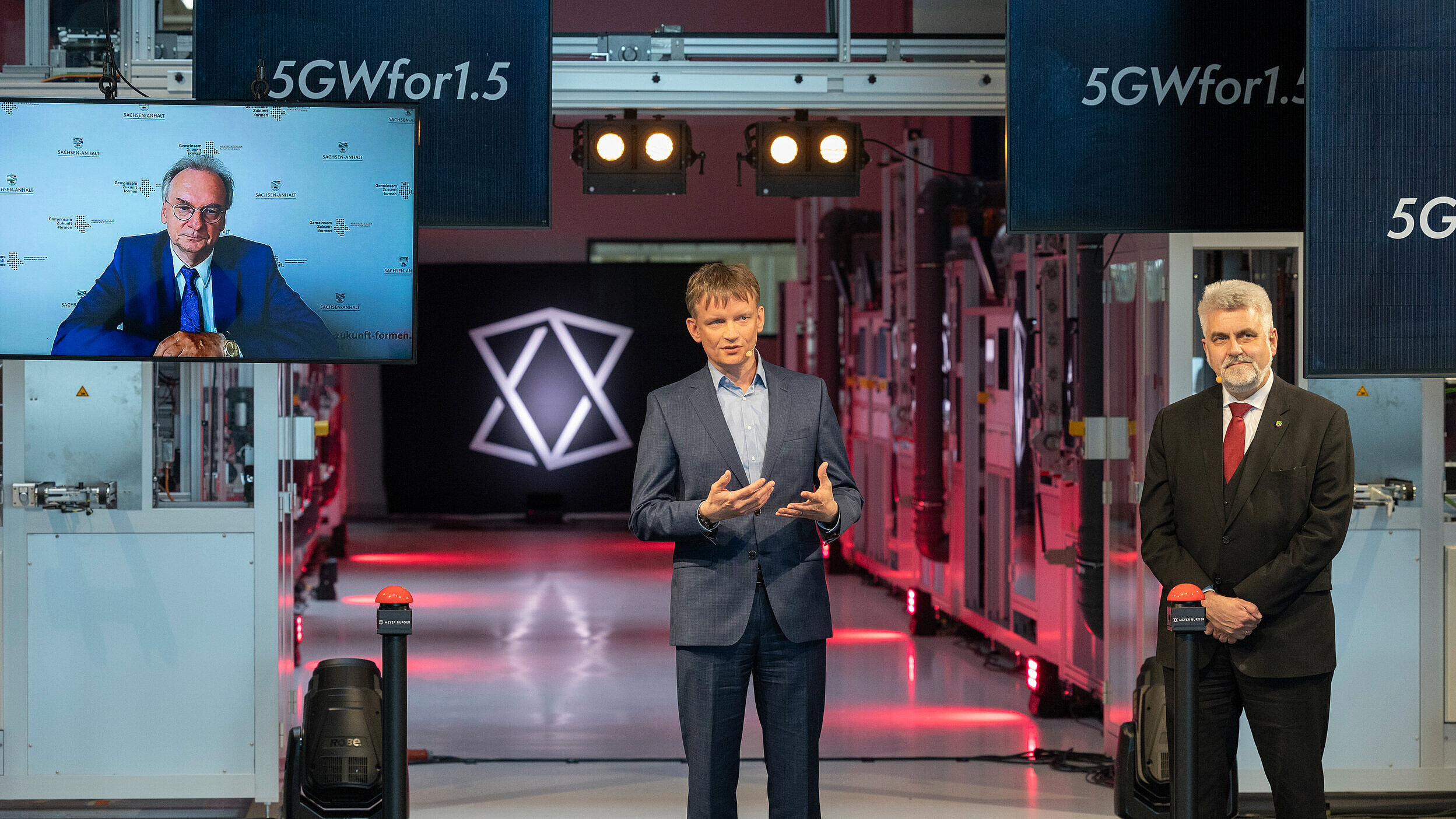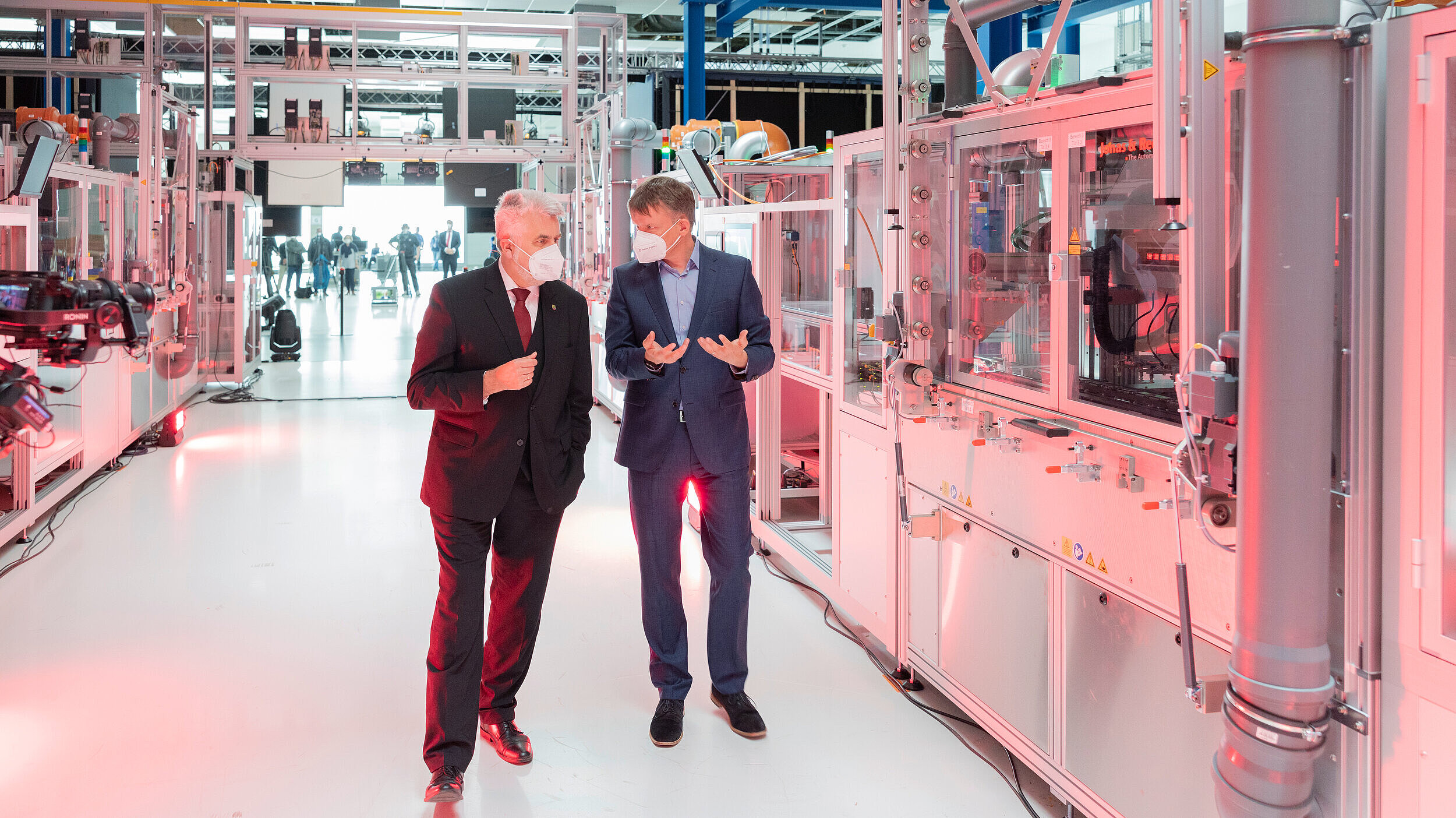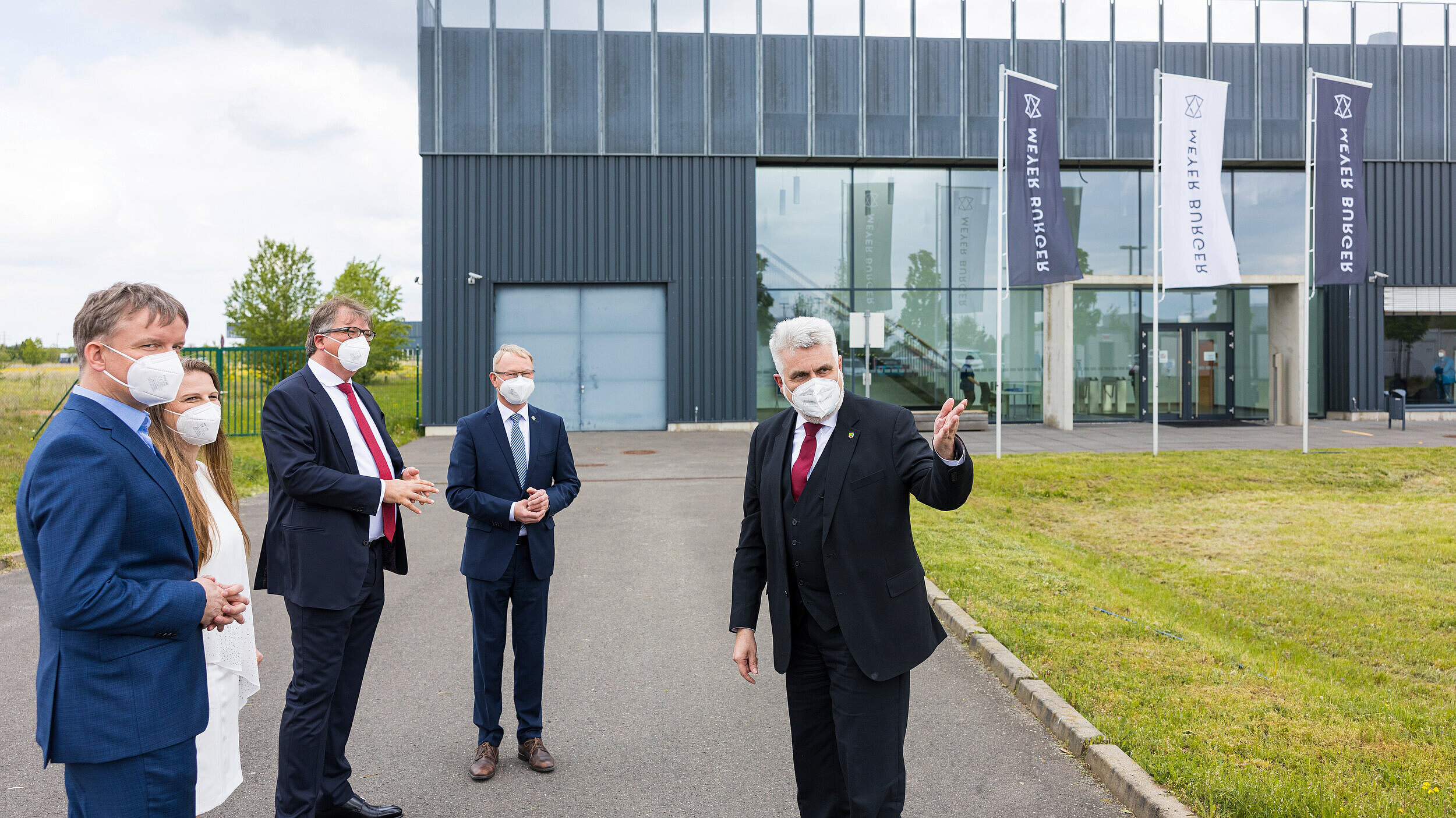Video show instead of stand-up reception
Meyer Burger opens its new high-performance cell factory in the Solar Valley of Bitterfeld-Wolfen virtually.
Special times need special formats. Thus, the opening of the new high-performance solar cell plant on May 18 in Thalheim, a district of Bitterfeld-Wolfen, took place almost exclusively digitally. Only Meyer Burger CEO, Gunter Erfurt, and Saxony-Anhalt's Minister of Economic Affairs, Prof. Armin Willingmann, were in person on site when a new era was ushered in at Solar Valley at the push of a button.
Video:
Opening of solar cell production in Solar Valley (Bitterfeld-Wolfen)
Video in German with English subtitles
Launch of "Made in Europe" solar cell technology
The Swiss Ambassador to the Federal Republic of Germany, Paul R. Seger, has sent a digital message of greeting to the opening ceremony. And Saxony-Anhalt's Minister President Reiner Haseloff will be live when the launch of "Made in Europe" solar cell technology marks an important step towards greater environmental friendliness and energy sovereignty.
The "Solar Valley" will once again become a symbol for a successful European solar industry. In addition to the ideal infrastructure, Meyer Burger relies on first-class trained and experienced personnel in the region. With the first expansion phase of 400 megawatts, Meyer Burger has already created hundreds of high-quality jobs. The Heterojunction/SmartWire technology, developed and patented by Meyer Burger over twelve years, enables new records in terms of performance and sustainability for solar modules. Meyer Burger is also building its supply chains as locally as possible; the most important raw material - polysilicon - comes from Europe. The Fraunhofer Institute for Solar Energy Systems confirmed earlier this year that solar cell production in Bitterfeld-Wolfen has significant environmental benefits compared to conventional manufacturing. This was rewarded by the German state of Saxony-Anhalt with a commitment for an environmental protection grant of up to 15 million euros and an investment subsidy of up to 7.5 million euros.
The production facilities developed at Meyer Burger's Neuchâtel and Thun sites and built in Hohenstein-Ernstthal (Saxony) are now being commissioned in Bitterfeld-Wolfen. Production in Thalheim will be ramped up in June. In highly automated full operation, up to 200,000 solar cells will roll off the production line every day. The Thalheim site currently has a total area of 27,000 square meters. This is sufficient for the targeted rapid expansion to 1.4 GW of solar cell capacity. In addition to production, Meyer Burger will house important corporate departments here, including sales and marketing. In the future, the solar cells will be processed into solar modules in Freiberg and shipped from July.
Please find further information in our press release.
Interview with Mayor Armin Schenk
Meyer Burger's plant opening in Thalheim (Bitterfeld-Wolfen)
Video in German
Bitterfeld-Wolfen is a town that has the sun integrated in its coat of arms. And Mayor Armin Schenk is proud that the sun is now shining again in real over the Solar Valley. Thus with the opening of the new Meyer Burger solar cell factory, a player that supports the city in its efforts to become climate-neutral and sustainable.
